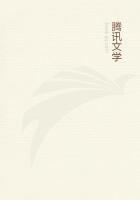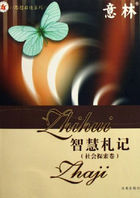There was so much the more reason for them to make a regulation in this matter, because they are the only people of those parts that neither allow of polygamy nor of divorces, except in the case of adultery or insufferable perverseness; for in these cases the Senate dissolves the marriage, and grants the injured person leave to marry again; but the guilty are made infamous, and are never allowed the privilege of a second marriage. None are suffered to put away their wives against their wills, from any great calamity that may have fallen on their persons; for they look on it as the height of cruelty and treachery to abandon either of the married persons when they need most the tender care of their comfort, and that chiefly in the case of old age, which as it carries many diseases along with it, so it is a disease of itself. But it frequently falls out that when a married couple do not well agree, they by mutual consent separate, and find out other persons with whom they hope they may live more happily. Yet this is not done without obtaining leave of the Senate, which never admits of a divorce but upon a strict inquiry made, both by the Senators and their wives, into the grounds upon which it is desired; and even when they are satisfied concerning the reasons of it, they go on but slowly, for they imagine that too great easiness in granting leave for new marriages would very much shake the kindness of married people. They punish severely those that defile the marriage-bed. If both parties are married they are divorced, and the injured persons may marry one another, or whom they please; but the adulterer and the adulteress are condemned to slavery. Yet if either of the injured persons cannot shake off the love of the married person, they may live with them still in that state, but they must follow them to that labor to which the slaves are condemned; and sometimes the repentance of the condemned, together with the unshaken kindness of the innocent and injured person, has prevailed so far with the Prince that he has taken off the sentence; but those that relapse after they are once pardoned are punished with death.
Their law does not determine the punishment for other crimes; but that is left to the Senate, to temper it according to the circumstances of the fact. Husbands have power to correct their wives, and parents to chastise their children, unless the fault is so great that a public punishment is thought necessary for striking terror into others. For the most part, slavery is the punishment even of the greatest crimes; for as that is no less terrible to the criminals themselves than death, so they think the preserving them in a state of servitude is more for the interest of the commonwealth than killing them; since as their labor is a greater benefit to the public than their death could be, so the sight of their misery is a more lasting terror to other men than that which would be given by their death. If their slaves rebel, and will not bear their yoke and submit to the labor that is enjoined them, they are treated as wild beasts that cannot be kept in order, neither by a prison nor by their chains, and are at last put to death. But those who bear their punishment patiently, and are so much wrought on by that pressure that lies so hard on them that it appears they are really more troubled for the crimes they have committed than for the miseries they suffer, are not out of hope but that at last either the Prince will, by his prerogative, or the people by their intercession, restore them again to their liberty, or at least very much mitigate their slavery. He that tempts a married woman to adultery is no less severely punished than he that commits it; for they believe that a deliberate design to commit a crime is equal to the fact itself: since its not taking effect does not make the person that miscarried in his attempt at all the less guilty.
They take great pleasure in fools, and as it is thought a base and unbecoming thing to use them ill, so they do not think it amiss for people to divert themselves with their folly: and, in their opinion, this is a great advantage to the fools themselves: for if men were so sullen and severe as not at all to please themselves with their ridiculous behavior and foolish sayings, which is all that they can do to recommend themselves to others, it could not be expected that they would be so well provided for, nor so tenderly used as they must otherwise be. If any man should reproach another for his being misshaped or imperfect in any part of his body, it would not at all be thought a reflection on the person so treated, but it would be accounted scandalous in him that had upbraided another with what he could not help. It is thought a sign of a sluggish and sordid mind not to preserve carefully one's natural beauty; but it is likewise infamous among them to use paint. They all see that no beauty recommends a wife so much to her husband as the probity of her life, and her obedience: for as some few are caught and held only by beauty, so all are attracted by the other excellences which charm all the world.
As they fright men from committing crimes by punishments, so they invite them to the love of virtue by public honors: therefore they erect statues to the memories of such worthy men as have deserved well of their country, and set these in their market-places, both to perpetuate the remembrance of their actions, and to be an incitement to their posterity to follow their example.
If any man aspires to any office, he is sure never to compass it: they all live easily together, for none of the magistrates are either insolent or cruel to the people: they affect rather to be called fathers, and by being really so, they well deserve the name; and the people pay them all the marks of honor the more freely, because none are exacted from them. The Prince himself has no distinction, either of garments or of a crown; but is only distinguished by a sheaf of corn carried before him; as the high-priest is also known by his being preceded by a person carrying a wax light.















